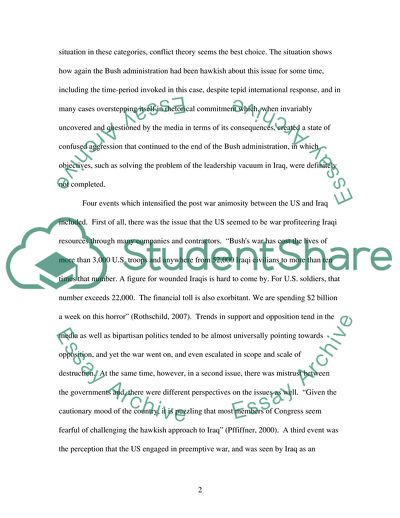Cite this document
(Bush's War and Clash of Civilization Coursework Example | Topics and Well Written Essays - 1500 words, n.d.)
Bush's War and Clash of Civilization Coursework Example | Topics and Well Written Essays - 1500 words. https://studentshare.org/politics/1731424-bushs-war-clash-of-civilization
Bush's War and Clash of Civilization Coursework Example | Topics and Well Written Essays - 1500 words. https://studentshare.org/politics/1731424-bushs-war-clash-of-civilization
(Bush'S War and Clash of Civilization Coursework Example | Topics and Well Written Essays - 1500 Words)
Bush'S War and Clash of Civilization Coursework Example | Topics and Well Written Essays - 1500 Words. https://studentshare.org/politics/1731424-bushs-war-clash-of-civilization.
Bush'S War and Clash of Civilization Coursework Example | Topics and Well Written Essays - 1500 Words. https://studentshare.org/politics/1731424-bushs-war-clash-of-civilization.
“Bush'S War and Clash of Civilization Coursework Example | Topics and Well Written Essays - 1500 Words”. https://studentshare.org/politics/1731424-bushs-war-clash-of-civilization.


